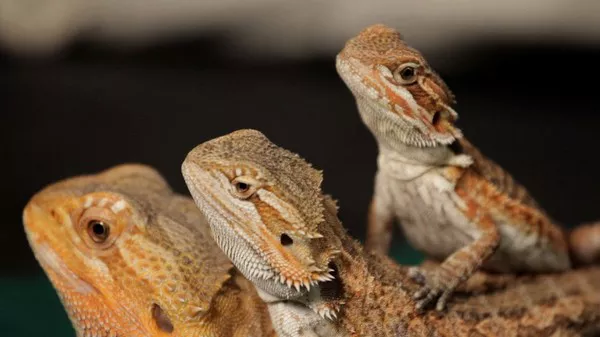Bearded dragons are a popular pet reptile known for their docile nature and unique appearance. However, like all animals, they require proper care and attention to thrive. One of the most important aspects of bearded dragon care is ensuring they are properly hydrated. Dehydration in bearded dragons can be a serious health concern that can lead to a range of issues, including lethargy, sunken eyes, and even death if left untreated. In this article, we will discuss how to tell if a bearded dragon is dehydrated and what steps you can take to prevent dehydration.
Signs of Dehydration in Bearded Dragons
The first step in preventing dehydration in your bearded dragon is being able to recognize the signs of dehydration. Here are some common signs of dehydration to look out for:
- Sunken eyes: One of the most common signs of dehydration in bearded dragons is sunken eyes. Dehydrated dragons may have eyes that appear shrunken or hollow, and the skin around the eyes may look dry and wrinkled.
- Lethargy: Dehydrated bearded dragons may appear weak, sluggish, or uninterested in their surroundings. They may spend more time sleeping than usual and may not be as active or alert as they usually are.
- Dry skin: Dehydrated bearded dragons may have dry, flaky skin that appears dull or lifeless. The skin may feel rough to the touch and may not shed as easily as it should.
- Constipation: Dehydration can cause constipation in bearded dragons, which can lead to a buildup of waste in the digestive system. This can cause discomfort and can even lead to more serious health issues if left untreated.
- Loss of appetite: Bearded dragons that are dehydrated may lose their appetite or may only eat small amounts of food. This can lead to malnutrition and can make it difficult for them to recover from dehydration.
Preventing Dehydration in Bearded Dragons
Now that you know how to recognize the signs of dehydration in bearded dragons, it’s important to know how to prevent dehydration in the first place. Here are some tips to keep your bearded dragon properly hydrated:
- Provide fresh water: Bearded dragons need access to clean, fresh water at all times. Make sure to change the water in their bowl regularly and ensure that the bowl is large enough for them to soak in if they need to.
- Offer water-rich foods: In addition to providing fresh water, you can also offer water-rich foods to help keep your bearded dragon hydrated. Vegetables such as cucumber, squash, and zucchini are excellent choices, as are fruits like watermelon and strawberries.
- Provide a humid environment: Bearded dragons require a certain level of humidity to stay properly hydrated. You can help maintain humidity levels in their enclosure by misting their environment with water or providing a humid hide.
- Monitor temperature: Bearded dragons require a warm, dry environment to thrive, but they can become dehydrated if the temperature is too high. Make sure to monitor the temperature in their enclosure and provide a basking spot that is warm but not too hot.
- Regular baths: Bearded dragons enjoy soaking in water, and regular baths can help them stay hydrated. Make sure the water is warm, but not too hot, and offer a shallow bowl or sink for them to soak in.
Dehydration can be a serious health concern for bearded dragons, but it is a preventable condition. By providing fresh water, offering water-rich foods, maintaining humidity levels, monitoring temperature, and providing regular baths, you can help keep your bearded dragon properly hydrated and healthy. Remember to keep an eye out for the signs of dehydration and seek veterinary care if you suspect


























